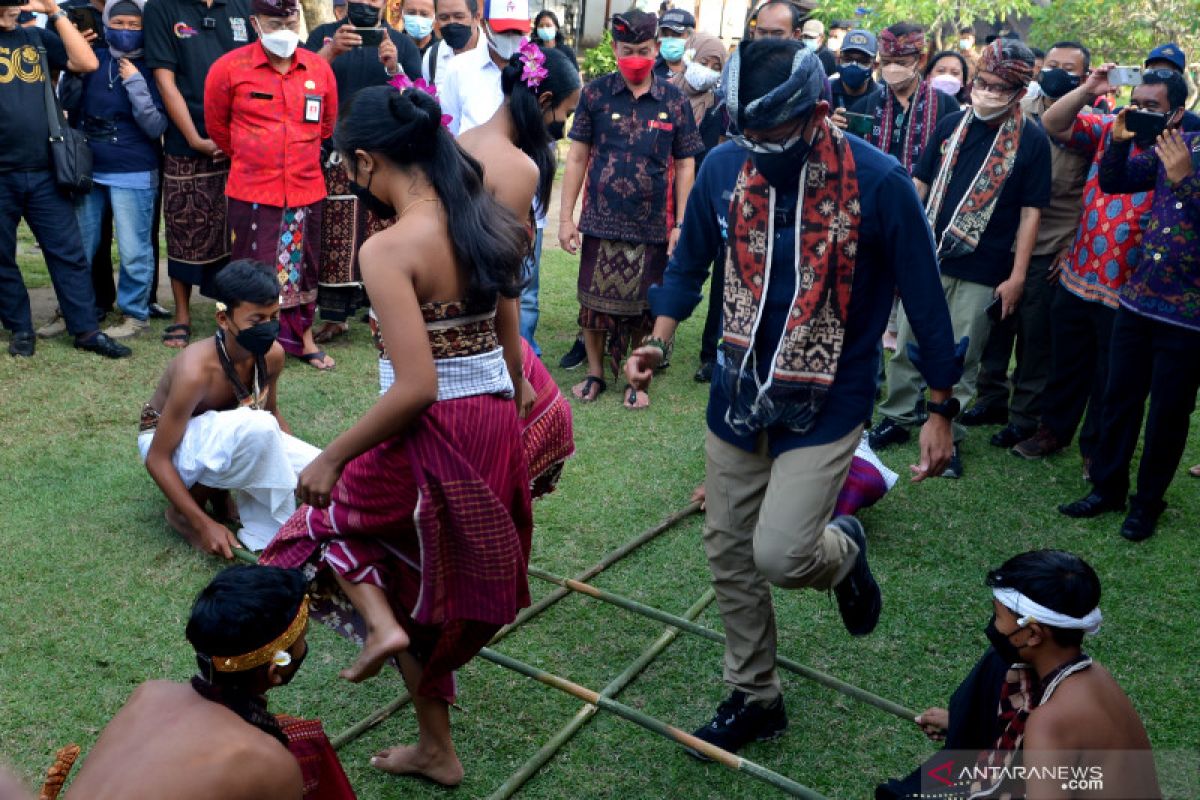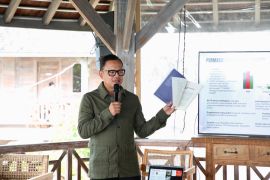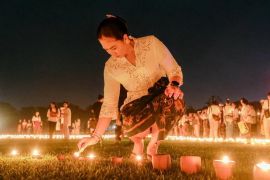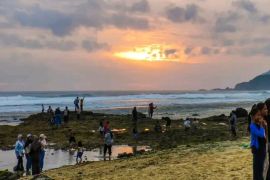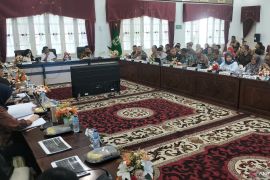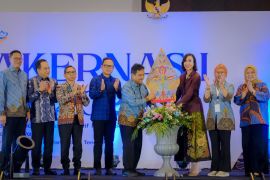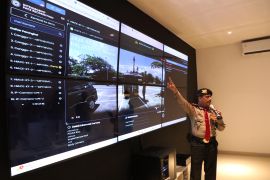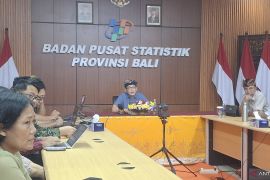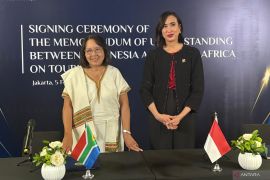The pandemic has also highlighted the importance of the community’s role in realizing quality and sustainable tourism.
The Ministry of Tourism and Creative Economy believes that the community’s role in the transformation to quality and sustainable tourism needs to be strengthened through discussions at a number of international forums.
The forums include the 1st Tourism Working Group (TWG), which is part of Indonesia’s G20 Presidency.
The delegates who attended the 1st TWG meeting were given the opportunity to share concrete steps or strategies, based on best practices, that G20 member countries could collaborate in.
It aimed to ensure that tourism human resources are educated optimally and their skills are improved amid the progress of digitalization while still taking into account the aspects of sustainable tourism.
Efforts to strengthen the community’s role in the tourism sector are centered on five lines of action, which were the main focus of the 1st TWG forum.
First, develop human capital related to talent management, education, skills, meeting market needs, as well as formulate policies and practices to create new jobs and added value.
Second, focus on spurring local community innovation, creating the infrastructure and skills needed for digitization, and connecting urban and rural areas by making the creative economy sector a driving force to improve the tourism value chain, MSME (micro, small, and medium enterprises) competitiveness, and the attractiveness of tourist destinations.
Third, focus on empowering the role of women and the youth in local communities as leaders in policy or business formulation and innovation creation.
Fourth, develop a new model that transforms tourism activities to accelerate progress toward sustainability and net-zero growth, under which the use of energy, land, water, and food sources in the tourism industry can reduce carbon emissions.
Last, focus on creating a holistic tourism policy and adequate investment conditions and a governance model.
Related news: G20 delegates agree to create a sustainable tourism climate
After the 1st TWG on May 10 and 11, 2022, the G20 delegates agreed to create a sustainable tourism climate by providing international financing for efforts to switch to sustainable tourism, among other things. Thus, the tourism sector can contribute more significantly to improving the economy, community welfare, and nature conservation.
"The COVID-19 pandemic has increased global public awareness of the importance of growing climate action or a healthy tourism environment, developing a circular economy, and increasing biodiversity conservation to preserve the earth," chair of the Tourism Working Group, Frans Teguh, noted in Labuan Bajo, East Nusa Tenggara.
According to him, the success of tourism is not only measured by the number of visitors, but also by the positive impact it can have on improving the economy, community welfare, and preserving nature.
He pointed out that based on research conducted by the World Tourism Organization (UNWTO) in December 2019, the tourism sector is expected to increase carbon emissions by an estimated 25 percent by 2030.
Therefore, the delegates agreed to address the issue through funding to create a sustainable tourism climate.
International financing is also expected to increase the volume of low-carbon transportation in the tourism sector, which will have a positive impact on environmental sustainability that, in the long run, will benefit the community.
Meanwhile, Tourism and Creative Economy Minister Sandiaga Uno said that his ministry will use Indonesia’s G20 Presidency to voice initiatives for sustainable tourism and promote Indonesia’s ecotourism through the Carbon Footprint Calculator (CFPC) program.
According to him, the CFPC program is an effort to absorb the carbon footprint produced by the tourism industry to help prevent its dire impact on the climate.
The carbon calculator will compute how much carbon is generated from the activities of a tourist from and to a destination.
Illustrating his point, he said that if he wanted to fly to Bali from New York on an economy class ticket, based on the carbon calculator, he will need to plant 20 trees to offset the carbon emitted by the airplane.
"Later, we will be given options in destinations like Bali to plant mangroves, maybe in the Pemuteran tourist village in Buleleng, or we can plant trees in Lake Batur,” he informed.
The CFPC program is concrete proof of Indonesia’s effort to achieve the Nationally Determined Contribution (NDC) target in 2030 by cutting greenhouse gas emissions by 29 percent through domestic efforts and by 41 percent with international support.
The agenda is also expected to achieve the target of Net-Zero Emissions (NZE) by 2060.
Related news: G20 member states to promote upskilling in tourism industry
The 2nd Tourism Working Group
The second meeting of the TWG is scheduled to be held offline in Bali on September 23, 2022. The substance of the Bali Guidelines will be discussed and their formulation continued at the Tourism Ministerial Meeting on September 26.
The formulation of the guidelines is one of the outcomes of the TWG, which is expected to contribute to global economic recovery with the tourism sector and the creative economy as its main focus as well as create wider job opportunities.
The guidelines have been prepared on the basis of a survey taken of G20 nations by the Ministry of Tourism and Creative Economy.
Considering that each country's approach to dealing with the COVID-19 pandemic is different, the survey asked each G20 member country to provide best practices from five lines of action, which were used as the basis for the preparation of the draft guidelines. Thus, the solutions and policies of the G20 member countries became the basis for the preparation of the draft guidelines.
Minister Uno said he hopes that with the G20 member countries compiling a joint agreement for global tourism recovery and the series of TWG events, 80 percent of the global economy would recover.
Future challenges in the tourism sector could be faced by adopting a multi-stakeholder approach to sustainable tourism development, he opined.
Strengthening the role of people as agents of change and designing ways to ensure the safe movement of tourists during the pandemic and post-pandemic periods would also help.
Various public activities have returned to normalcy as the government has eased several COVID-19 restrictions, such as the lifting of the mask mandate in open spaces and COVID-19 testing for travelers. As a result, efforts to achieve sustainable and quality tourism in Indonesia are becoming easier.
Investors who want to invest in the tourism sector do not need to worry about the threat of COVID-19 transmission in the country because, in general, most Indonesian citizens have been vaccinated.
Moreover, Indonesia’s COVID-19 vaccination and handling programs have been recognized worldwide and have become a best practice that has supported the economic revival. Further, there are at least 11,968 tourism enterprises in 34 provinces that have been granted CHSE (Cleanliness, Health, Safety, and Environmental Sustainability) certification.
The Tourist Village program has also offered stakeholders, local communities, and enterprises opportunities to gain economic benefits. For example, the Penglipuran Tourist Village in Bali generated more than US$1.45 million in revenue in 2020.
The government can take advantage of the series of G20 meetings in Indonesia to promote tourism and showcase local products to the world so that Indonesia can increasingly be recognized as a country that is ready to realize quality and sustainable tourism
Related news: G20 a platform to promote local tourism, products: Minister Uno
Related news: Ministry unveiling tourism, creative economy side events at 2022 G20
Editor: Suharto
Copyright © ANTARA 2022
